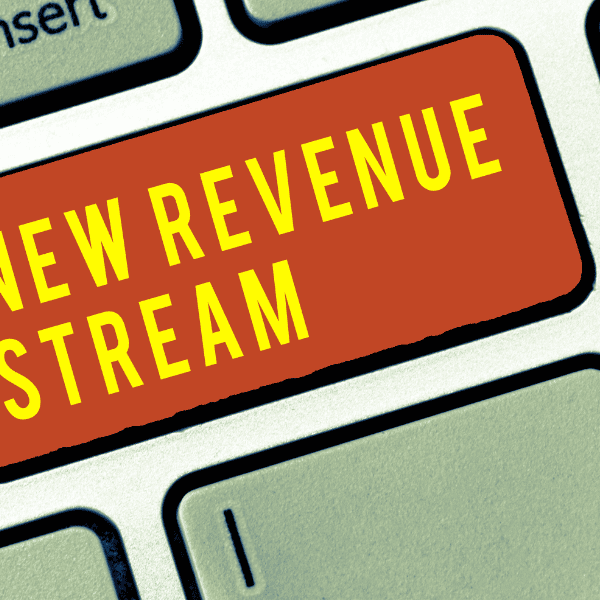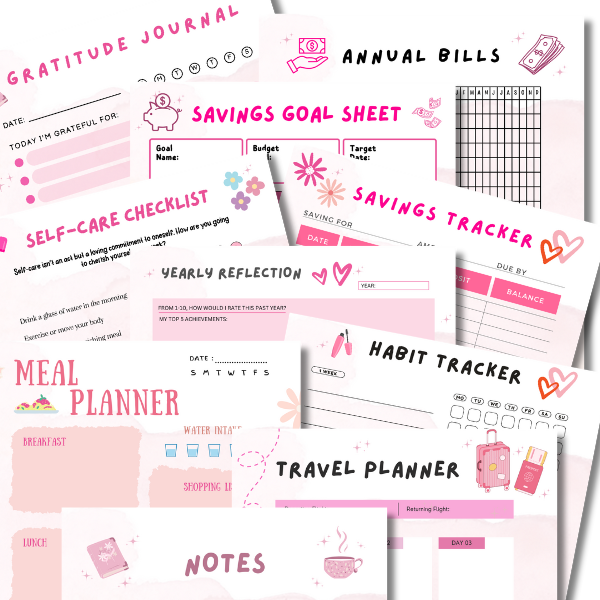How Fixing Your Finances May Help You Leave Your Hated Job
This post may contain affiliate links which might earn us money. Please read my Disclosure and Privacy policies hereIf you find yourself stuck in a job you hate, fixing your finances might be the key to eventually leaving that job behind. While quitting your job immediately might not be feasible, taking steps to improve your financial situation can give you the freedom and flexibility to change.
I will explore why fixing your finances is essential for leaving a hated job and how financial stability can impact job satisfaction.

Why fixing your finances is essential for leaving a hated job
One of the main reasons why fixing your finances is crucial for leaving a job you hate is that it provides you with a safety net. With a solid financial foundation, you have the financial security to take risks and pursue other opportunities without worrying about immediate financial stability. By organizing your finances, you can create a cushion that allows you to leave your job without the fear of financial struggle.
Also, fixing your finances can help you gain control over your life. When you are financially stable, you have more freedom to make decisions based on your personal fulfillment and happiness rather than solely on financial obligations. This can give you the confidence to pursue your passions and find a career that aligns with your values and interests.
The relationship between financial stability and job satisfaction
There is a strong connection between financial stability and job satisfaction. Financial stress can significantly impact your mental health and overall well-being, which can, in turn, affect your job satisfaction.
When you are constantly worried about making ends meet or living paycheck to paycheck, it can be difficult to find fulfillment in your work.
Fixing your finances and achieving financial stability can reduce financial stress and improve your overall job satisfaction. With a solid financial foundation, you can focus on finding a job or career that brings you happiness and fulfillment rather than simply chasing a paycheck.
Fixing your finances is a crucial step if you want to leave a job you hate. Improving your financial situation can create a safety net, gain control over your life, and increase your overall job satisfaction. So, take the time to evaluate your finances, plan, and start taking steps toward financial stability. Your future self will thank you.

Assessing Your Finances
Evaluating your current financial situation
Before you can begin the process of fixing your finances to leave your hated job, it's important to assess your current financial situation. Take a close look at your income, expenses, savings, and debts. Evaluate how much you are earning and how much you are spending each month.
Are you living within your means or struggling to make ends meet? Understanding your financial standing will give you a clear picture of where you currently stand and what areas need improvement.
Identifying areas for improvement
Once you have evaluated your current financial situation, it's time to identify areas for improvement. Look for opportunities to reduce expenses and increase income. Consider cutting back on non-essential expenses such as dining out or subscription services.
Explore other sources of income, such as a side job or freelancing, to supplement your primary income. Additionally, take a close look at your debts and create a plan to pay them off systematically.
Creating a budget and financial plan
To effectively fix your finances and leave your hated job, creating a budget and financial plan is crucial. Start by setting financial goals that align with your long-term objectives. Break down your goals into smaller, actionable steps that you can take to achieve them.
Take control of your spending by creating a realistic budget that allows you to save money and prioritize your financial goals. Consider seeking professional advice from a financial advisor or planner who can help you create a comprehensive financial plan tailored to your specific needs and goals.
Continuously monitoring and adjusting your finances
Fixing your finances is an ongoing process that requires continuous monitoring and adjustment. Regularly review your budget and your expenses to ensure you stay on track. Look for areas where you can further reduce costs or increase savings. As your financial situation improves, revisit and adjust your financial goals accordingly.
Regularly reassess your career goals and aspirations, and be open to exploring new job opportunities that align better with your values and interests. By staying proactive and adaptable, you can steadily improve your financial situation and leave your hated job.
Assessing your finances, identifying areas for improvement, creating a budget and financial plan, and continuously monitoring and adjusting your finances are essential steps in fixing your finances to help you leave your hated job.
Taking control of your financial situation gives you the freedom and flexibility to make a career change and pursue a more fulfilling professional life. Remember, it's never too late to start improving your finances and taking steps towards a brighter future.

Creating a Budget
The importance of budgeting for financial control
Fixing your finances is crucial if you want to free yourself from a job you hate. One of the key steps in this process is creating a budget. Budgeting is essential for gaining control over your financial situation and achieving long-term financial stability.
By creating a budget, you can track your income and expenses, identify areas where you can cut back, and allocate your money effectively toward your goals.
A budget allows you to understand how much money you have coming in and how much you are spending. It provides a clear overview of your financial situation, helping you make informed decisions about your expenses and savings.
With a budget in place, you can prioritize your spending, eliminating unnecessary expenses and focusing on what truly matters.
Tips for creating an effective budget plan
To create an effective budget plan, consider the following tips:
- Track your income and expenses: Start by documenting all your sources of income and categorizing your expenses. This will give you a clear picture of where your money is going each month.
- Set financial goals: Determine your short-term and long-term financial goals. Whether it's paying off debt, saving for a down payment, or building an emergency fund, having clear goals will help you stay motivated and focused.
- Allocate funds wisely: Divide your income into different categories, such as housing, transportation, groceries, and entertainment. Assign a specific amount of money to each category, ensuring that you are not overspending in any area.
- Plan for emergencies: Build an emergency fund to cover unexpected expenses. Aim to save at least three to six months' worth of living expenses to provide a financial safety net.
- Review and adjust: Regularly review your budget and make adjustments as needed. Track your spending, identify areas where you can cut back, and reallocate funds to align with your priorities.
By creating and maintaining a budget, you can gain control over your finances and work towards leaving your hated job. Budgeting helps you identify opportunities for saving, provides financial stability, and puts you on a path toward achieving your financial goals.
Remember, consistency and discipline are key when it comes to budgeting. Stay committed to your budget and make conscious decisions about your spending to improve your financial situation and create a more fulfilling professional life.

Reducing Debt
How debt can keep you stuck in a job you hate
Debt can be a major obstacle when it comes to leaving a job you hate. Many people find themselves trapped in a job they despise because they are burdened with significant financial obligations. Monthly debt payments can eat into your income, leaving you with little financial flexibility to pursue other opportunities or take risks.
The fear of not being able to meet these obligations can create a sense of dependency on an unsatisfying job, making it difficult to break free and pursue something better.
Strategies for paying off debt and freeing yourself financially
While it may seem challenging, there are strategies you can implement to pay off your debt and gain the financial freedom to leave your hated job. Here are some helpful tips:
- Create a Debt Repayment Plan: Start by assessing all your debts and creating a plan to pay them off systematically. Determine which debts have the highest interest rates and prioritize paying those off first. Consider consolidating your debts or negotiating with creditors to lower interest rates or payment terms.
- Reduce Expenses and Increase Income: Look for ways to cut back on unnecessary expenses and redirect that money towards debt repayment. Consider taking on a side job or freelance work to boost your income and accelerate your debt payoff plan.
- Seek Professional Financial Assistance: If you're feeling overwhelmed by your debt, it may be beneficial to consult with a financial advisor or credit counselor. They can provide guidance on debt management strategies and help you develop a personalized plan.
- Stay Motivated: Paying off debt takes time and dedication. Stay motivated by setting milestones and celebrating small victories along the way. Remind yourself of the ultimate goal of achieving financial freedom and the ability to leave your hated job.
You can gradually gain control over your financial situation by implementing these strategies and reducing your debt. With reduced debt obligations, you'll have the freedom and flexibility to explore new job opportunities that align with your passions and interests.
Taking charge of your finances is crucial to breaking free from a job you hate and creating a more fulfilling professional life.

Increasing Savings
Building an Emergency Fund and Creating Financial Security
Getting your finances in order can play a crucial role in leaving a job you hate. One important step towards financial security is to build an emergency fund. An emergency fund is a pool of money for unexpected expenses or financial emergencies.
This safety net can give you the confidence and financial security to pursue a career change without the fear of being left high and dry in unforeseen circumstances. Experts suggest saving three to six months of living expenses in your emergency fund.
Also, creating financial security involves managing your debt effectively. Paying off high-interest debts, such as credit cards or loans, can free up cash flow and reduce financial stress. By developing a solid plan to pay off debt systematically, you can regain control of your finances and move closer to your goal of leaving your detested job.
Ways to Save Money and Cut Expenses
To increase your savings and gain more financial freedom, it's important to identify areas where you can cut expenses. Start by analyzing your monthly budget and identifying non-essential spending that can be reduced or eliminated. Look for ways to negotiate lower bills, such as insurance premiums or cable packages.
Another effective way to save money is by adopting frugal habits. This could include cooking at home instead of eating out, finding cheaper alternatives for entertainment or clothing, and exploring free or low-cost leisure activities.
Creating a habit of saving is also essential. Automating your savings by setting up recurring transfers to a separate account can make saving consistently easier. Even small contributions can add up over time, giving you a financial cushion to pursue your passion and shift away from a job you despise.
When you increase your savings and cut expenses, you can create financial security and gain more control over your personal finances. This newfound financial freedom can empower you to leave your hated job and pursue a more fulfilling career path. Remember, it's never too late to start taking steps toward financial independence and a happier professional life.

Exploring Alternative Income Streams
The Benefits of Having Multiple Income Sources
Diversifying your income through multiple sources offers numerous benefits that can enhance your financial security and open up opportunities for greater wealth accumulation. Multiple income streams can provide stability and peace of mind, especially if you're considering leaving a job you hate. Here are some key benefits of diversifying your income:
- Reduced Financial Dependence: Relying solely on a single job for income can be risky. If that job becomes unstable or is no longer fulfilling, it can leave you feeling trapped. Having alternative income sources allows you to rely less on a single source and gives you more flexibility in making career choices.
- Increased Financial Security: By generating income from different sources, you create a safety net that can protect you during challenging times. If one income stream is affected, you'll still have other sources to rely on, reducing the financial stress associated with unexpected events or job loss.
- Expanded Opportunity for Wealth Accumulation: Additional income streams can accelerate your wealth-building journey. You can build assets and generate passive income by investing the extra income wisely. This can lead to financial independence and the ability to leave your disliked job without worrying about your financial stability.
Ideas for Generating Additional Income
There are various ways to diversify your income and generate additional sources of revenue. Here are some ideas to get you started:
- Rental Properties: Invest in real estate and earn passive income through rental properties. This can provide a steady cash flow stream and potential appreciation over time.
- Freelancing or Consulting: Leverage your skills and expertise in a particular field to offer freelance services or consultancy work. This allows you to work on your own terms and earn additional income.
- Online Business: Start an online business by selling products or offering services through e-commerce platforms or creating a blog or YouTube channel that generates income from advertisements and sponsorships.
- Investments: Diversify your investment portfolio by investing in stocks, bonds, mutual funds, or other financial instruments. This can provide both short-term and long-term returns.
- Side Gigs: Take on part-time jobs or side gigs that align with your skills and interests. This could include tutoring, pet sitting, driving for ride-sharing apps, or selling handmade crafts.
By exploring and implementing these ideas, you can create multiple income streams that not only improve your financial situation but also provide the opportunity to leave your detested job.
Diversifying your income requires careful planning, research, and a willingness to take calculated risks. With perseverance and the right strategies, you can achieve financial independence and find a career path that brings fulfillment and happiness.

Investing in Yourself
The role of self-improvement in career satisfaction
Investing in yourself can significantly impact your overall career satisfaction, especially if you find yourself trapped in a job you hate. By dedicating time and resources to self-improvement, you can develop the skills, knowledge, and mindset necessary to advance your career or make a change.
Fixing your finances is one way to invest in yourself and create more opportunities for career fulfillment.
Investing in education, skills, and personal development
One way to fix your finances and pave the way for leaving your hated job is by investing in education, skills, and personal development. By continuously learning and acquiring new skills, you can position yourself for better job prospects or even start your own business.
Taking courses, attending workshops, or pursuing higher education can provide you with the knowledge and credentials to explore new career paths or advance within your current field.
Additionally, investing in personal development can help you build the confidence and resilience needed to make a career change. By focusing on personal growth, you can develop an entrepreneurial mindset that allows you to identify opportunities, take risks, and innovate. This mindset is valuable for starting your own business and finding fulfillment in your professional life.
By fixing your finances, you can create the financial stability necessary to invest in yourself and pursue new career opportunities. Whether paying off debt, saving for further education, or building an emergency fund, getting your finances in order will allow you to explore different career paths without the fear of financial instability.
Remember, investing in yourself is a lifelong journey. Continuously evaluate your skills, interests, and passions, and seek opportunities to grow and develop. By prioritizing your personal and professional growth, you can create a career path that brings you fulfillment and happiness, leaving your hated job behind.

Taking Action
Setting goals and implementing financial changes
One of the key ways to leave a job you hate is by fixing your finances. Taking control of your financial situation can provide the freedom and stability you need to pursue new career opportunities. Here are some steps you can take toward fixing your finances and leaving your hated job:
- Evaluate your expenses: Take a close look at your budget and identify areas where you can cut back on expenses. This might involve eliminating unnecessary subscriptions, reducing dining out, or finding ways to save on utilities. By trimming your expenses, you can free up more money to save or invest in your future career.
- Create a plan: Develop a financial plan that aligns with your career goals. This might involve setting targets for savings, paying off debts, or investing in further education. By having a clear plan in place, you can track your progress and stay motivated to achieve your financial and career objectives.
- Explore side hustles: If you need to increase your income while still working your current job, consider starting a side hustle. This could be freelancing, tutoring, or selling crafts online. A side hustle can not only bring in additional income but also provide an opportunity to explore your skills and interests outside of your current job.
Steps to take toward leaving your hated job
Once you have taken the necessary steps to fix your finances, you can start planning your exit from the job you hate. Here are some steps to consider:
- Save an emergency fund: Build up an emergency fund that can cover your expenses for a few months in case you decide to leave your job without having another one lined up. This will provide a safety net and alleviate financial stress during the transition period.
- Network and explore opportunities: Connect with professionals in your desired industry and attend networking events to expand your opportunities. Utilize online platforms like LinkedIn to showcase your skills and connect with potential employers or clients.
- Develop new skills: Invest in yourself by acquiring new skills or furthering your education in areas that align with your desired career path. This will not only make you more attractive to potential employers but also increase your confidence in making a career change.
By taking these actions, you can fix your finances and create the foundation needed to leave your hated job. Remember, it takes time and dedication, but you can transition to a more fulfilling career with a clear plan and the right mindset.

Fixing your finances can play a vital role in helping you leave a job that you hate. By taking control of your financial situation, you can create the freedom and stability needed to pursue new career opportunities. By evaluating your expenses, creating a plan, and exploring side hustles, you can strengthen your financial position and increase your options for leaving your current job.
Once you have improved your finances, you can take steps towards leaving your hated job by saving an emergency fund, networking, exploring opportunities, and developing new skills. These actions will provide a solid foundation for a smoother career transition and a more fulfilling professional life.
The connection between financial freedom and job fulfillment
There is a direct correlation between financial freedom and job fulfillment. When your finances are in order, you are less reliant on a job that you hate for your basic needs, allowing you to have the freedom to explore new career paths.
By fixing your finances, you can reduce financial stress, work fewer hours, and have more time to focus on finding a job that aligns with your passions and goals.
Financial stability also provides a safety net, giving you the confidence to leave your current job without the fear of financial ruin. Ultimately, achieving financial freedom opens up doors for finding a more fulfilling career where you can thrive and find greater satisfaction.
Taking control of your finances for a happier and more fulfilling career
Taking control of your finances is crucial for creating a happier and more fulfilling career. When you have a clear financial plan and manage your expenses effectively, you can reduce financial pressure, giving you the flexibility to pursue work that brings you joy and fulfillment.
By eliminating debt, building savings, and having a solid financial foundation, you can make choices based on passion and purpose rather than financial necessity. Furthermore, having control over your finances enables you to take calculated risks, such as starting your own business, switching careers, or going back to school for further education.
Ultimately, a strong financial position empowers you to make decisions that lead to a more satisfying and rewarding professional life.
Frequently Asked Questions
Q: Will fixing my finances guarantee that I will find a job I love?
A: Fixing your finances alone does not guarantee that you will find a job you love. However, it provides the financial security and freedom necessary to explore new opportunities and take risks without the fear of financial instability.
Q: How long does it take to fix your finances and leave a hated job?
A: The timeline for fixing your finances and leaving a hated job varies for each individual. It depends on factors such as the amount of debt, income level, and expenses. It is essential to create a realistic plan and stay committed to achieving your financial goals.
Q: Should I quit my job before having another one lined up?
A: Quitting your job before having another one lined up can be a personal decision. However, it is recommended to have some financial security in place, such as an emergency fund, to cover expenses during the job transition period.
Q: Will I need to make sacrifices in order to fix my finances and leave my hated job?
A: Fixing your finances and leaving a hated job may require some sacrifices, such as reducing expenses, working additional hours on side hustles, or investing in further education. These sacrifices are often worth it in the long run, as they pave the way for a more fulfilling career and financial stability.








Given the shortness of life and the amount of time we spend at work, I believe each one has an obligation to be at a job/occupation that makes them happy and brings out the best in them. I agree with your points, one oughta have a plan and communicate on the goals – its in getting it out there about what you want to do that you will get the help you need to achieve it.
Wonderful tips, Britnee. And you’re right: those sacrifices are temporary, and so worth it too!
Budgets and sacrifices have been a big part of our financials in the past year. I really feel like both have helped us to focus on where we are and where we want to get.